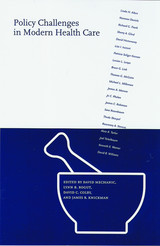
This reexamination, Frank argues, is essential to an understanding of al-Ghazali’s work, a diverse series of texts made difficult by the various postures and guises assumed by their author. Statements by al-Ghazali regarding the kalam (the speculative theology of the schools) and its status as a religious science provide the focus for a detailed analysis that contrasts the traditional school theology with his own. From this, the question of al-Ghazali’s relationship to the Ash arite school becomes a key to the basic characteristics of his method and language and therefore to the overall sense that governs much of his work. Finally, as reflected in the chronological sequence of al-Ghazali’s writings, Frank’s analysis demonstrates al-Ghazali’s commitment to basic elements of Avicennian philosophy and his progressive alienation from the Ash arite establishment.
Al-Ghazali and the Ash arite School offers an important and provocative reassessment of a major medieval Islamic thinker. It will be of interest not only to specialists in the field, but also to a broad range of historians of the period and to those interested in all aspects of Islam.

Health care delivery in the United States is an enormously complex enterprise, and its $1.6 trillion annual expenditures involve a host of competing interests. While arguably the nation offers among the most technologically advanced medical care in the world, the American system consistently under performs relative to its resources. Gaps in financing and service delivery pose major barriers to improving health, reducing disparities, achieving universal insurance coverage, enhancing quality, controlling costs, and meeting the needs of patients and families.
Bringing together twenty-five of the nation’s leading experts in health care policy and public health, this book provides a much-needed perspective on how our health care system evolved, why we face the challenges that we do, and why reform is so difficult to achieve. The essays tackle tough issues including: socioeconomic disadvantage, tobacco, obesity, gun violence, insurance gaps, the rationing of services, the power of special interests, medical errors, and the nursing shortage.
Linking the nation’s health problems to larger political, cultural, and philosophical contexts, Policy Challenges in Modern Health Care offers a compelling look at where we stand and where we need to be headed.
READERS
Browse our collection.
PUBLISHERS
See BiblioVault's publisher services.
STUDENT SERVICES
Files for college accessibility offices.
UChicago Accessibility Resources
home | accessibility | search | about | contact us
BiblioVault ® 2001 - 2024
The University of Chicago Press









